What Is the Best Type of Battery for a Golf Cart? A Complete Guide for 2025
Introduction: Choosing the Right Battery Matters
For golf cart owners and fleet managers, selecting the right battery is crucial for performance, reliability, and cost efficiency. With multiple battery types available — lead-acid, AGM, and lithium — it can be challenging to decide which one best suits your needs. This guide breaks down the key factors you should consider, including cost, lifespan, efficiency, maintenance, safety, and regulatory compliance.
- Common Types of Golf Cart Batteries
- Flooded Lead-Acid (FLA) Batteries
- Traditional choice for many golf carts
- Require regular watering and maintenance
- Lower upfront cost but shorter lifespan
- Absorbent Glass Mat (AGM) Batteries
- Sealed lead-acid variant, maintenance-free
- Slightly higher cost than FLA
- Improved performance and reduced gassing
- Lithium-Ion Batteries
- Higher upfront cost but superior total cost of ownership (TCO)
- Lightweight, maintenance-free, and fast-charging
- Longer lifespan and consistent performance
👉 Explore practical solutions with LeoCH Lithium Golf Cart Batteries to see models suitable for your fleet or personal use.
- Performance Comparison: Lifespan and Efficiency
Lifespan:
- Lead-acid: 1,200–1,500 cycles (≈3–5 years)
- AGM: 1,500–2,000 cycles (≈4–6 years)
- Lithium: 3,000–5,000+ cycles (≈8–10 years)
Depth of Discharge (DoD):
- Lead-acid: typically 50–60% usable capacity
- Lithium: 80–90% usable capacity, more energy available per charge
Charging Efficiency:
- Lithium batteries charge faster (1–2 hours) vs lead-acid (6–8 hours)
- Opportunity charging supported for lithium, allowing quick top-ups during breaks
These performance differences make lithium batteries ideal for high-frequency, multi-shift operations, while lead-acid or AGM may suffice for casual use or infrequent driving.
- Cost Analysis: Upfront vs Total Cost of Ownership
- Upfront Cost: Lithium batteries are 30–50% more expensive than lead-acid or AGM.
- Maintenance Cost: Lead-acid batteries require watering and regular checks; lithium batteries are maintenance-free.
- Replacement Frequency: Lithium batteries last longer, reducing replacement costs and downtime.
- Total Cost of Ownership (TCO): Over 8–10 years, lithium batteries often become more cost-effective due to lower operational and replacement costs.
- Safety and Environmental Considerations
- Lead-Acid: Risk of acid spills, hydrogen gas emission, requires proper ventilation
- AGM: Sealed, safer than flooded lead-acid but still contains lead
- Lithium: Low emissions, stable chemistry, and safer for indoor or enclosed use
Regulatory Notes for North America:
- Lead-acid batteries are subject to strict EPA and state-level recycling and disposal regulations.
- Lithium batteries must comply with UN 38.3, DOT, and FAA transport standards.
- Understanding these regulations ensures your golf cart fleet operates safely and legally while minimizing compliance costs.
- Usage Scenarios: Which Battery Fits Your Needs?
- Casual/Personal Use: Lead-acid or AGM may be sufficient, lower upfront cost
- Frequent or Commercial Use: Lithium provides faster charging, longer lifespan, and minimal maintenance
- High-Performance or Fleet Management: Lithium ensures higher efficiency, opportunity charging, and consistent power output
- Future Trends in Golf Cart Batteries
- Lithium battery prices are gradually decreasing, making them more accessible
- Improved energy density and faster charging technology
- Growing demand for sustainable and low-maintenance solutions in golf courses and fleet operations
Conclusion: Choosing the Best Battery
While lead-acid and AGM batteries have their place, lithium batteries clearly lead in lifespan, efficiency, and overall convenience. They are especially suitable for multi-shift operations, high-frequency use, and fleets seeking lower long-term costs.
👉 Interested in upgrading to lithium? Check out our Leoch Golf Cart Lithium Batteries to find the right solution for your cart.
For more in-depth guidance on selecting the best lithium battery, see our detailed guide: Best Lithium Golf Cart Batteries: How to Choose What’s Right for You.


